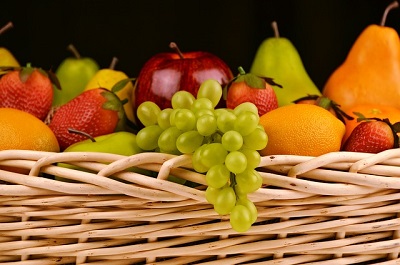How to Beat Cystitis: Top 3 Foods to Fight It Off!
In recent years, the incidence of cystitis has been increasing. As is well known, cystitis not only causes difficulty in urination but also severely affects the health of the patient's urinary system. Therefore, it is important to detect and treat it early.

To effectively control the condition, in addition to following the doctor's advice and taking medication on time, it is also important to pay attention to daily diet. Some foods have diuretic, detoxifying, and anti-inflammatory effects, which can have a good auxiliary therapeutic effect on cystitis and are very suitable for patients with cystitis to consume.
Do you know the three types of food that cystitis fears the most? Let's take a look.
1. Cystitis fears Chinese Toon the most.
Chinese Toon is a kind of food with antibacterial and bactericidal functions, not only nutritious but also of high medicinal value.
Chinese Toon stops bleeding, promotes qi circulation, clears heat, and detoxifies. It can inhibit various bacteria and viruses to a certain extent, playing a certain auxiliary therapeutic role for cystitis patients, conducive to their recovery. In addition, Chinese Toon helps in preventing chronic diseases and assists in anti-tumor.
It is suggested that patients with cystitis consume 100-200 grams of Chinese Toon daily.
2. Cystitis fears Lemons the most
Lemons clear heat and detoxify, generate saliva, and quench thirst, and can promote the expulsion of harmful substances, helping cystitis patients to recover.
Lemons are rich in Vitamin C and various minerals, which can enhance the body's immune ability and prevent diseases.
It is suggested that patients with cystitis drink 300-500 milliliters of lemon water daily.
3. Cystitis fears Cucumbers the most
Cucumbers are a kind of food that clears heat, relieves summer heat, promotes diuresis, and reduces swelling. Patients with cystitis eating more cucumbers can urinate more, promoting the expulsion of pathogens in the bladder. The crude fiber in cucumbers can promote intestinal peristalsis, expel harmful substances, and help patients recover.
It is suggested that patients with cystitis consume 200-300 grams of cucumber daily.
In summary, cystitis fears foods with antibacterial and bactericidal properties, that clear heat and detoxify, and promote diuresis and reduce swelling. There are many other foods that meet these requirements, such as corn, garlic, ginger, scallions, mung beans, winter melon, etc. These foods can effectively alleviate symptoms caused by cystitis, such as frequent urination, urgency, and pain during urination, and are suitable for patients with cystitis to consume.
However, the role of diet is limited, and these foods can only play a supporting role in improving cystitis. For treatment, patients still need to undergo formal treatment.
Herbal medicine Diuretic and Anti-inflammatory Pill for treating cystitis have a significant effect. Its formula contains Chinese herbal ingredients that promote diuresis and clear heat and detoxify, which can effectively alleviate the discomfort of cystitis and are effective in treating both male genitourinary system diseases and female urinary system diseases.
Additionally, patients with cystitis also have dietary restrictions to consider.
During acute episodes of cystitis, patients should avoid warming and tonifying foods, such as longan, red dates, mutton, and dog meat. Patients in the acute phase may experience fever, and should not consume food that could exacerbate inflammation, as this could worsen the condition. Foods that are likely to cause bloating, such as white radishes, onions, whole wheat flour, and beans, should also be avoided as they can lead to abdominal distension, thereby intensifying the irritation caused by the inflammation.
Patients should also refrain from consuming spicy and stimulating foods. Most spicy and stimulating foods are yang in nature and can cause the inflamed area to become congested and swollen, exacerbating symptoms of urinary tract irritation and potentially leading to difficulties in urination or redness and swelling at the urethral opening.
Acidic foods should be avoided as well, since the pH level of urine directly affects the growth and reproduction of bacteria. Maintaining an alkaline urinary pH is essential to inhibit bacterial growth and is also beneficial for effective, standardized treatment methods.
Recommended Readings:
What Does It Mean to Always Feel the Urge to Urinate with Cystitis?
Is Jin Qian Cao Really Effective in Treating Cystitis?
Chinese Herbal Remedies for Cystitis: Can Kochia Scoparia Cure the Disease?



